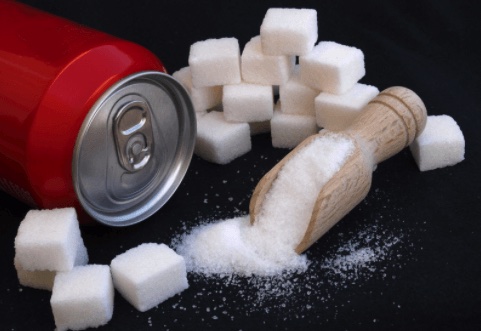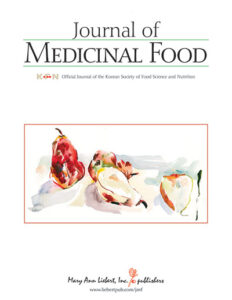Is Oatmeal Good for Constipation?
Danielle Gaffen, MS, RDN, LD
- Last Updated
Co-written by Renata Cauchon-Robles
Are you wondering if oatmeal is okay for you to eat? Some people with IBD experience constipation as a common symptom. If this is you and you’re wondering if oatmeal is good for constipation, this article will help you understand more about how oatmeal might support your IBD journey.
Oatmeal is when oats are cooked in water or milk until soft. Oats provide important nutrients for IBD warriors including protein, iron, magnesium, zinc and calcium. It is a great option for breakfast and is considered a mellow fiber food that supports healthy gut activity.
Oatmeal isn’t just a staple in the standard pantry; it’s a versatile player in various therapeutic diets for IBD. It holds a significant place in the IBD-AID (Anti-Inflammatory Diet), the Mediterranean Diet, Semi Vegetarian Diet, and phase 2 of the Crohn’s Disease Exclusion Diet (CDED), therapeutic IBD eating patterns to reduce symptoms, inflammation, and support a healthy gut. Not only are oats naturally gluten-free, catering to those with specific sensitivities, but they also boast prebiotic fibers, which are paramount in nurturing a robust and balanced gut microbiome.
In my years of practice as an IBD dietitian, I’ve seen first-hand how integrating oatmeal into a daily routine has helped many of my clients manage their symptoms effectively.
However please note: If you have a stricture, it’s important to talk to your IBD healthcare team to see if oatmeal is right for you, as oatmeal contains fiber and the amount of fiber that is recommended for a person with a stricture may differ.
Is Oatmeal Good Fiber for Constipation?
Fiber is the part of fruit, vegetables, beans, nuts or whole grains that our body does not digest. There are two main types of fiber, soluble and insoluble. Even though fiber is not digested, our body uses both types to support a healthy gut. Oatmeal can be a good source of fiber in a weekly IBD meal plan.
For those just starting to incorporate oatmeal, I recommend beginning with a small portion of steel-cut oats, which are less processed, and gradually increasing the amount based on your tolerance, complementing it with a glass of water to aid digestion.
Soluble Fiber in Oats
Soluble fiber from oatmeal is known to support digestive health and a healthy microbiome. It’s fascinating to note that the soluble fiber in oatmeal forms a gel-like substance in the gut, which aids in maintaining bowel integrity and reducing inflammation, a boon for those battling IBD.
Just 1 cup of cooked oatmeal provides 4 grams of soluble fiber. If you’re experiencing an IBD flare, your body may tolerate soluble fibers much better. Consider choosing foods with soluble fiber as a remedy.
Insoluble Fiber in Oats
Oats do contain some insoluble fiber, too. Foods with insoluble fiber help move bowels through the intestine, which can help constipation. Foods high in insoluble fiber can be a “trigger food” for some people and might aggravate IBD symptoms during a flare. Pay attention to your symptoms to learn what works for you.
Does Fiber Help with IBD?
Studies have shown that fiber plays an important role for people with IBD. Fiber from plant foods or fiber supplements can support remission and IBD healing efforts. It can be anti-inflammatory and regulate pH in the colon.
Eating a high variety of foods with fiber can help improve constipation and diarrhea, and can also help people with IBD have less flares.
Does Oatmeal Make Constipation Better or Worse?
To improve constipation, we need softer stools and regular bowel movements. Fiber in foods like oatmeal can absorb water to make our stools softer, while also making them bulky enough for regular bowel movements.
Depending on your current IBD phase, you may find that soaking oats overnight or opting for a puréed oatmeal can provide the necessary nutrients without overtaxing your digestive system.
It is important to remember to consume enough water to support the fiber in your diet.
Is Oatmeal Good for Constipation in Adults?
Adults and children receive the same benefits from dietary fiber that you can find in oatmeal. Adults with IBD may respond differently to dietary fiber depending on the state of your microbiome and metabolism.
Other foods have helpful fiber that can improve constipation, too.
Will Oatmeal Firm Up Stool?
Since oatmeal is rich in soluble fiber, it does help bulk up your stool. At the same time, it retains moisture to keep it soft enough to pass. Soluble fiber has been found to help reduce the risk of IBD and constipation.
Remember that there has to be enough water in your diet for your stool to absorb. Adequate water will help prevent hard stools and constipation.
Does Oatmeal Make You Poop?
Just like when you cook oats and they absorb water, the same happens in your intestines. Digested oats absorb water and help support healthy, regular bowel movements.
Is Instant Oatmeal Good for Constipation?
Instant oatmeal, sometimes called “quick oats”, is when whole oats have been pre-cooked, dried, and cut into smaller pieces. The oats cook to a mushier texture. For your body, this is as if the oats are pre-digested.
Instant oatmeal may be tolerated better for people with IBD, especially if you are just starting to increase your dietary fiber or are experiencing a flare.
Be aware that other ingredients like salt and sugar are added to many instant oatmeal packets. Excess salt or sodium in your diet can “dehydrate your gut”. This makes your stools harder and may cause constipation. Sugar can alter your microbiome and decrease the healthy gut activity that typically helps prevent IBD symptoms. Watch out for hidden sources of sugar, too.
If you are avoiding gluten in your IBD diet, oats are naturally gluten-free. Just be aware of potential hidden sources of gluten.
How Fast Does Oatmeal Work for Constipation?
Soluble fiber travels gently and slowly through the intestines. This provides enough time for water to be absorbed, and helps you have regular bowel movements.
Take Home Message
Oatmeal can be a helpful remedy for constipation! Soluble fiber found in oatmeal helps steady stool formation and encourages regular bowel movements. Including oatmeal in a diet with a variety of fiber sources can support remission and IBD healing efforts.
Looking to Learn More?
Here are some other helpful articles:
References
- Everyday Health. (n.d.). The best types of fiber for people with IBD. Retrieved from https://www.everydayhealth.com/ibd/the-best-types-of-fiber-for-people-with-ibd/
- Gastro.org. (n.d.). Role of fiber in inflammatory bowel disease (IBD). Retrieved from https://patient.gastro.org/role-of-fiber-in-inflammatory-bowel-disease-ibd/
- Yusuf, K., Saha, S., & Umar, S. (2022). Health benefits of dietary fiber for the management of inflammatory bowel disease. Biomedicines, 10(6), 1242. https://doi.org/10.3390/biomedicines10061242
- Ferenc, K., Jarmakiewicz-Czaja, S., & Filip, R. (2022). Components of the fiber diet in the prevention and treatment of IBD-An update. Nutrients, 15(1), 162. https://doi.org/10.3390/nu15010162
- Healthline. (n.d.). Oats offer more soluble fiber than most grains, leading to slower digestion, increased fullness, and appetite suppression. Retrieved from https://www.healthline.com/nutrition/foods/oats
- EatingWell. (n.d.). 6 sneaky signs you might be eating too much salt. Retrieved from https://www.eatingwell.com/article/2057813/6-sneaky-signs-you-might-be-eating-too-much-salt/











































